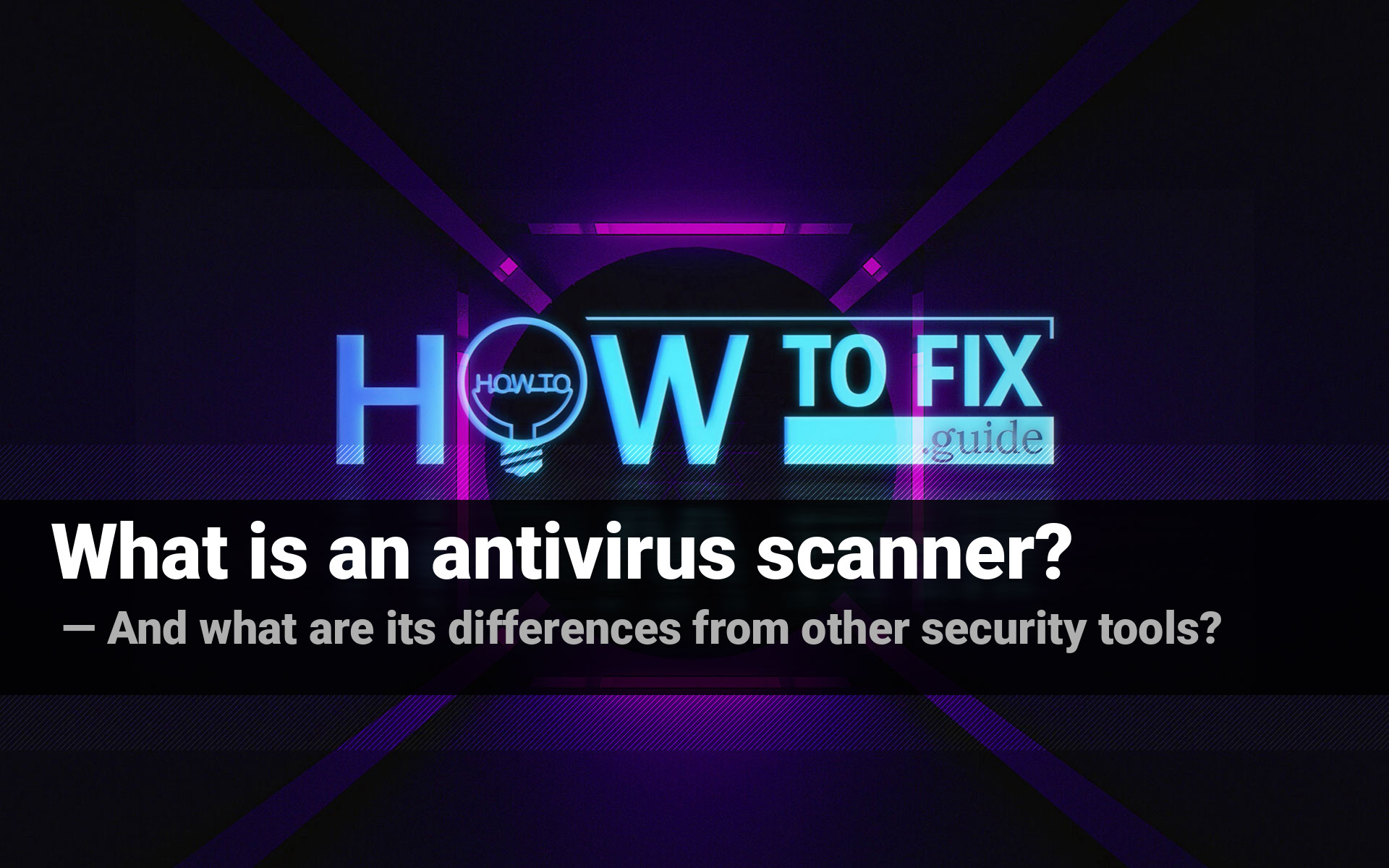If you want to know what the term “antivirus scanner” (sometimes: “virus scanner”) means, this article is for you to read. We will start with this question: what is an antivirus scanner? After that, we will figure out the difference between it and antivirus programs in general. Eventually, we will see how do all the mentioned terms correlate with the name “anti-malware software”.
READ ALSO:A worst computer virus in the world. What is it?
What is an antivirus scanner?
An AV-scanner is a program with a well-defined function – it reads through the drives of your computer to detect malware and potentially unwanted applications. More advanced scanners can also block dangerous files and provide background scanning for real-time protection. But that’s it. Threats removal is the function of other programs.
Although the function of scanners might seem simple, they deploy various methods of threat detection, which is not an easy task since cybercriminals constantly alter existing malware. The approaches include collating files with databases of existing malware, second-guessing malware mutations with the heuristic approach, and finally, a neural-network-based machine learning to recognize malware by its inherent features. The usage of databases is a well-proven method, but it is weak against mutating malware. The other two approaches are still half-experimental and may trigger false positive detections. However, they show brilliant results at times. AV scanners can use more than one detection method, of course.
Antivirus or anti-malware programs (we will explain the difference below) are complexes of various software modules, scanners included, that together provide all-around protection familiar to anyone who has an installed AV. Many security software vendors offer scanners as a sole free function of their products as advertising.
READ ALSO: Safe Browsing in Chrome. How to turn it off/on?
What is other security software out there?
Security software (also security tools) is a term that encompasses all program products that function to increase the safety of your system. These tools vary in their complexity, the extent of user involvement, exclusiveness, and situatedness of usage. And yet, they share a common characteristic of being a countermeasure to malware.
“Anti-malware” can be generally considered a synonym to “anti-virus,” since viruses, being merely one of the malware types, have in their day coined the word for marking the whole multitude of harmful programs. However, viruses per se are almost extinct nowadays, thanks to the progress of countermeasures. Therefore, a more up-to-date term seems more relevant, although meaning the same thing.
Nevertheless, there is a correspondence between the novelty of the term and the up-to-dateness of the software in question. Although it is not stated anywhere, anti-malware software is usually faster and lighter than antivirus software. It also does not feature some additional functions the latter often has.
What are the differences between antivirus and anti-malware?
Thus, both antivirus and anti-malware programs perform the same basic operations like scanning drives, detecting potentially harmful objects, quarantining and removing them, maintaining background protection, and recovering system programs if needed. Antivirus software is usually more ponderous as it provides such extra facilities as recovering files of third-party programs, parental control, VPN, and other options. The functions of non-system files recovery date back to the times when viruses, infecting various kinds of files, were the main threat.
RELATED: Malware vs virus. What’s the difference?
Anti-malware programs have their own benefits that suit the modern world well. These programs are quick to install and employ. They are swift and stand toe to toe with “large” antiviruses. Moreover, since virus databases slightly differ from vendor to vendor, it is reasonable to combine an antivirus with an anti-malware program that can serve as an additional scanning utility. GridinSoft Anti-Malware is a lightweight and not expensive program that shows brilliant results in protecting systems. We can equally recommend you to use it either as the main security system or as an auxiliary measure.
And yet, there is no better protection than caution and wisdom of the user. Avoid questionable websites, do not use pirate software and media, be wary of possible attacks via email and messengers, and you will be safer than going headlong through sordid dens of the Web armored with antiviruses.
CONSIDER READING: Network Security in a Nutshell. That’s how you protect your workgroup.
User Review
( votes)


